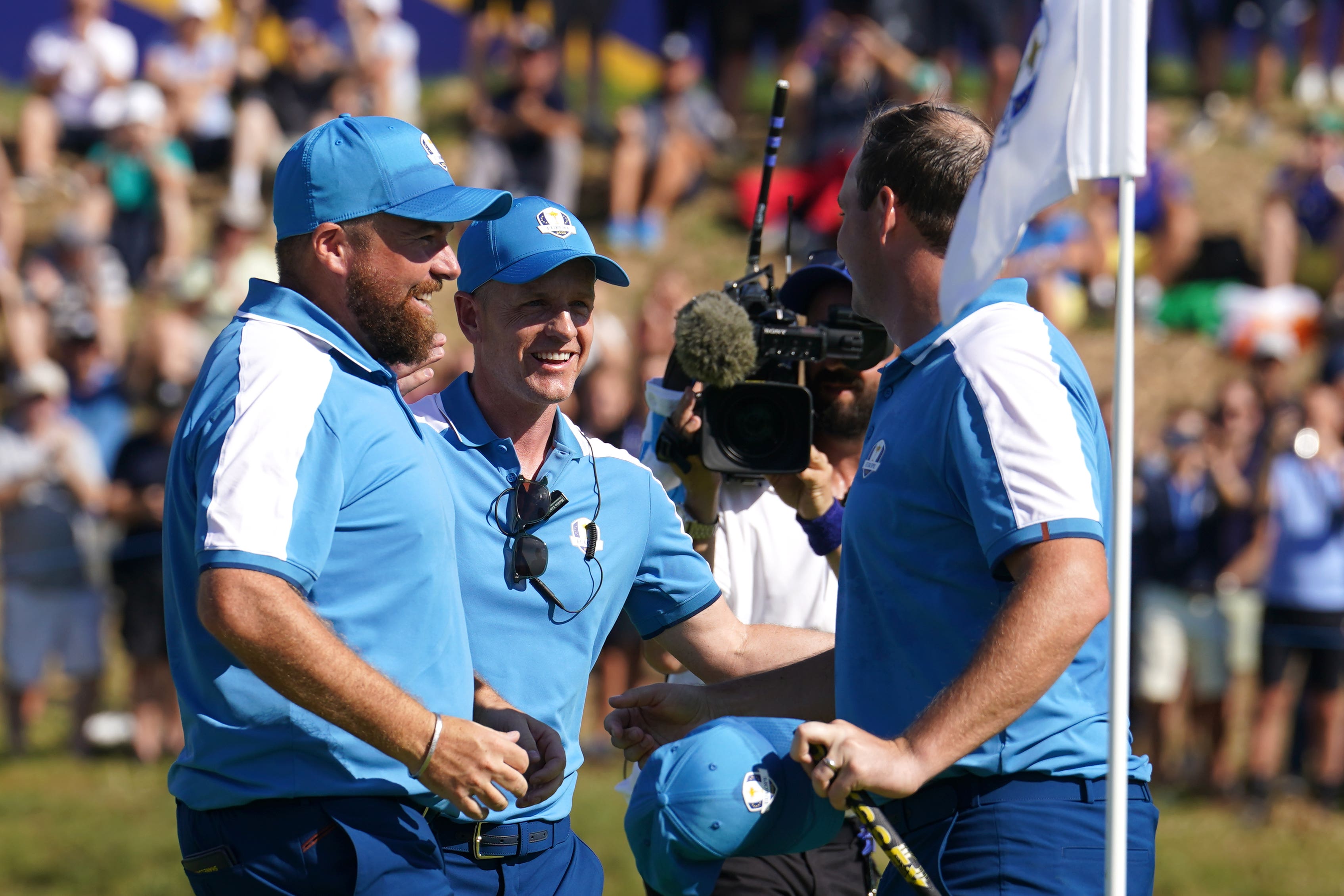What could Friday’s Ryder Cup action mean for the next two days in Rome?
Europe had a tremendous start.

The United States failed to win a single match as Europe equalled the biggest day-one lead in the modern format of the Ryder Cup.
Since the Great Britain and Ireland team was expanded to Europe in 1979, a margin of 6 1/2 points to 1 1/2 had only before been achieved in 2004 – and even then, the beaten Americans managed one foursomes win.
Here, the PA news agency looks at how Friday’s success compares and what it could mean.
Friday’s results
Europe won all four of the morning foursomes, only their fourth ever session whitewash with the others coming on Friday afternoons in 1987, 1989 and 2018.
Another win followed in the afternoon from Rory McIlroy and Matt Fitzpatrick, 5&3 over Collin Morikawa and Xander Schauffele, with none of the five home wins reaching the 18th hole.
When the other games did get there, though, it was to Europe’s benefit – Viktor Hovland’s dead-weight birdie putt halved the top match, Jon Rahm rattled in his second eagle in three holes and Justin Rose brilliantly closed out another half.
Echoes of 2004
Europe’s previous 4-0 sessions came after a 2-2 share of the Friday morning in 1987 and overturned 3-1 deficits on the other two occasions.
That 6-2 margin in 1987 was matched in 1999, Europe winning 2 1/2 points in the Friday morning foursomes and 3 1/2 in the afternoon fourballs, and by the Americans with a pair of 3-1 wins in 2021.
But the only precedent for a team scoring 6 1/2 points on day one comes from 2004, when Europe won three of the morning fourballs with an additional half-point from Paul McGinley and current captain Luke Donald.
Chris DiMarco and Jay Haas finally got the USA on the board but Europe won the remaining three foursomes on their way to an eventual 18 1/2 9 1/2 win – a European record which was matched two years later.
The USA’s 19-9 win two years ago is the only bigger margin in a Europe-United States contest though after Europe’s 6-2 opening days, they won only 15-13 in 1987 and lost the contest in 1999.
Battle of Brookline
From the American perspective, what is needed is a comeback to top one of the Ryder Cup’s most memorable contests – largely for unwanted reasons.
The 1999 contest in Brookline is chiefly noted for the controversy on the final day, with Justin Leonard’s long putt at the 17th sparking wild American celebrations even as Europe’s Jose Maria Olazabal still had a putt for a half to keep the match alive.
Colin Montgomerie reported that he suffered such abuse that his father left the course, Mark James alleged that a fan spat at his wife and Europe vice-captain Sam Torrance singled out Tom Lehman’s conduct as “disgusting”, with Lehman later apologising for his and his team’s behaviour.
A dramatic contest, though, deserves to be remembered for the golf that was played. Wins for Montgomerie and Paul Lawrie followed by Sergio Garcia and Jesper Parnevik gave Europe the early initiative, with Jeff Maggert and Hal Sutton pulling back a first American win and the other match on Friday morning halved.
A half for Montgomerie and Lawrie and wins for Garcia and Parnevik, Olazabal and Miguel Angel Jimenez and then Darren Clarke and Lee Westwood made it 6-2 and each of Saturday’s sessions were shared 2-2, leaving Europe 10-6 up heading into the singles.
American players won the first seven matches to finish before Padraig Harrington and Lawrie stopped the rot. Jim Furyk beat Garcia, though, to make it 14-12 and Olazabal’s miss after the commotion at the 17th meant an eventual 14 1/2 13 1/2 home win.
Bookmark popover
Removed from bookmarks